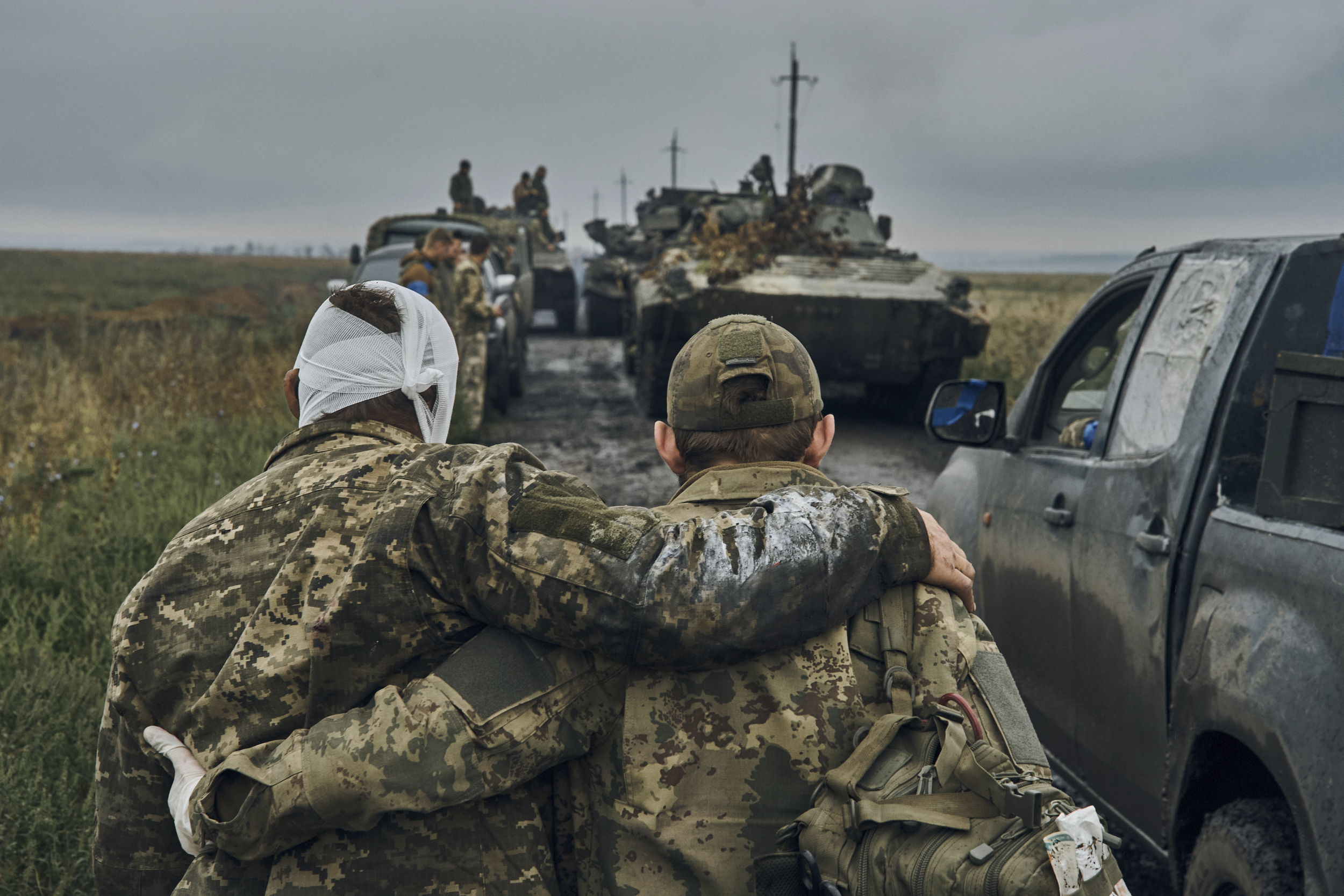Has the war in Ukraine reached a turning point?
Ukraine's recent counteroffensive was a significant moment on a long frontline.
By the six-month mark of Russia's war in Ukraine, the conflict had become a largely static one, with neither side conducting significant offensive operations. Until last week.
Following a surprising counteroffensive, Ukraine said this week that it managed to recapture over 2,300 square miles of territory from Russia in the Kharkiv region in the northeast, including the strategic city of Izyum. The move also forced Russian troops to hastily retreat in what Russia's defense ministry called a "regrouping" of forces.

Some military analysts see the counteroffensive as a turning point in the war, marking a likely end to Russia's ability to mount any major offensives in Ukraine again, while others -- including President Joe Biden -- have said it's hard to tell if that is indeed the case.
Retired Col. Steve Ganyard, an ABC News contributor, called the offensive an important victory for Ukraine, though he noted that the battle in the south, near Kherson, is still crucial.
"The frontline is thousands of miles long. The Russians still maintain most of the Donbas and they're still holding up Ukrainian advances in the south," Ganyard said. "It's a terrific victory for the Ukrainians. It will bolster their morale. It will show that they can fight better than the Russians can and it shows how weak the Russian military really is. But it is just one battle. One tactical, one operational victory. The war is still far from over."
'Stunning' breakthrough
Ukraine's offensive in the north seems to have caught Russian forces off-guard. After publicizing plans for a counteroffensive in Kherson last month, Ukrainian forces also pushed forward in the northeast unexpectedly last week.

"They actually sucker-punched the Russians," Ganyard said. "The Russians moved 25 battle groups from the eastern front and the northeastern front, down to the area around Kherson to defend, add troops. So this made the lines up north around Kharkiv very thin."
The Russians may not have thought Ukraine could conduct two major offenses, but Ukrainian troops attacked the weakened front and "flew through the remaining Russian defenses," Ganyard said. "It's very extraordinary," said. "We went from a relatively static battlefield for weeks if not months, to this amazing breakthrough, stunning breakthrough that the Ukrainians were able to conduct and achieve up in the north around Kharkiv."
More than 6,000 square kilometers were recaptured, according to Ukrainian President Volodymyr Zelenskyy. Ukrainian officials said they have retaken control of several cities, including Izyum -- which had been used as the main logistical hub for Russia's assault on the Donbas region.
Momentum heading toward winter
While the offensive is seen as strategically important for Ukraine and a major morale booster -- with the opposite implications for Russia -- there's still a long way to go in war, Ganyard said.
Zelenskyy has previously stated his goal is to take back all Ukrainian territory from Russia, which still occupies around a fifth of Ukraine's territory, according to the Institute for the Study of War, a Washington D.C.-based think tank that has been closely tracking the war.

Retaking Kherson, a city on the Dnieper River, would allow Ukraine to sustain its economy, Ganyard said. While a Russian counteroffensive seems unlikely given how "decimated" its military has become, Ukraine could run the risk of becoming stretched too thin, he said.
"The Ukrainians need to be careful that they don't overrun their supply chain, that they don't have such catastrophic success that they themselves become too thin and stretched out in the areas that they've retaken," Ganyard said.
One key factor in the ongoing conflict will be the winter and the challenges that may bring.
"Clearly, the Ukrainians have the momentum and they will probably continue to hold that momentum going into the winter," he said. "The winter season changes everything...Who knows what's going to happen when things begin to get cold."



